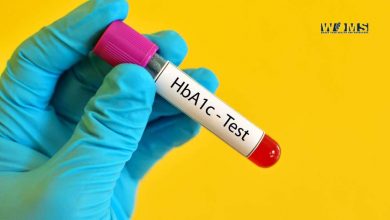How To Identify Drug Addiction Symptoms in Your Loved Ones

Drug addiction can devastate lives and families if left unaddressed. If you suspect a loved one may be abusing drugs, paying close attention to changes in their physical, mental, and behavioral health is key to identifying a problem and getting them the treatment they need.
Substance abuse affects people in countless ways, and catching the signs early allows for the greatest chance of a full recovery. In this article, we’ll discuss the telltale symptoms to look for that indicate drug abuse in a loved one, as well as how to begin intervening to get them the help they deserve.
If you suspect a loved one might be addicted to drugs, paying attention to the signs and symptoms can help you intervene early and get them the help they need. Drugs impact people physically, mentally, and behaviorally, so changes in any of these areas could indicate a problem.
Physical Symptoms
Changes in physical health or hygiene are major red flags. Look out for:
Deterioration in personal hygiene and grooming
Refrain from neglecting responsibilities like showering regularly, doing laundry, and changing clothes. Wearing the same clothes for multiple days.
Weight loss or weight gain
Rapid weight changes, especially loss of appetite or significant increase in appetite.
Changes in sleeping patterns
Not being able to sleep at night. Only sleeping during the day. Experiencing interrupted or restless sleep.
Unusual physical health issues
Multiple illnesses like colds, flu, and infections. Poor wound healing. Physical injuries from drug use or unsafe environments. Organ damage from long-term drug effects.
Track marks or bruises
Unexplained puncture wounds, bruises, or burn marks, especially on arms and legs are a result of injecting drugs.
Mental Symptoms
Addiction causes changes in mood and behavior that indicate mental health issues. Signs include:
Depression or anxiety
Feeling hopeless, helpless, worthless. Withdrawing from friends and activities. Experiencing panic attacks.
Paranoia
Suspiciousness, mistrust of others. Believing people are “out to get them.” Checking locks multiple times.
Mood swings
Going from calm and happy to angry and agitated with little or no provocation.
Memory loss and confusion
Trouble concentrating. Forgetting events, conversations, and dates. Trouble following directions.
Lethargy
Lack of motivation and energy. Constant fatigue. Difficulty finishing tasks.
Behavioral Symptoms
Behavioral changes are the most obvious indicators of drug addiction. Things to watch for:
Withdrawal from family and friends – Isolating, avoiding social events. Answer phone calls less frequently. Canceling plans last minute. Little to no communication.
Performing risky behavior – Unsafe sex. Unprotected drug use. Driving under the influence. Stealing to support drug habits.
Problems at school or work
Missing classes, turning assignments late. Calling in sick frequently. Lower work performance. disciplinary actions.
Secretive behavior
Hiding things. Telling lies. Being suspicious of others “snitching.” Using passwords on devices and accounts.
Changes in financial situation
Asking for loans. Sudden job loss. Unexplained loss of money or valuables. Selling personal possessions.
Signs Your Loved One May Be Using Meth
Methamphetamine, or meth, is a highly addictive and dangerous opiate. In addition to the general signs of addiction mentioned earlier, there can be more specific signs of meth use that indicate your loved one may be using meth. Symptoms like rapid eye movements, dilated pupils, neglecting dental hygiene, and having a ‘meth mouth, can be all signs of meth addiction.
Getting Your Loved One The Help They Need
You’ve recognized the signs of drug addiction in someone you care about; now what? Getting them to help may be the most loving thing you can do, but it’s also one of the hardest.
Have an honest, caring conversation
Let them know you’re concerned and want to help, not judge. Speak from the heart. Say, “I care about you and only want to see you healthy and happy. I’m worried the drugs are hurting you, and I’d like to help you get treatment.”
Offer to go with them
Rehab can be a scary, necessary step, so letting them know you’ll be by their side the whole way can ease that fear. Say, “I’ll go to the appointment with you and support you through the process.” Your presence may convince them to follow through.
Set clear boundaries
If they refuse help, you may need to set boundaries for your own well-being. Say, “I can’t continue having you in my life if you won’t get treatment. I love you too much to enable your addiction.” Boundaries show you care without enabling.
Consider an intervention.
Organize loved ones for a structured intervention if one-on-one talks don’t work. Have a treatment plan ready. Knowing it’s not just you can persuade them to accept help.
Look into involuntary commitment
In extreme cases where the addiction threatens their life or others, involuntary commitment may be necessary. This is a last resort, but it could save their life.
Find treatment solutions they’re open to
Different rehab methods work for different people. Outpatient, inpatient, holistic – keep options open to get them in the door.
Stay patient but persistent.
Remember, relapses are common. Recovering from addiction takes time and support. Stay loving but firm that treatment is non-negotiable.
Above all, lead with compassion.
Your loved one is struggling with a chronic brain disease. Coming from a place of love and understanding will give you the best chance of convincing them to get help. Remember, you can lead a horse to water but can’t make them drink – your loved one must want help for themselves. Your role is to create an environment where they feel supported enough to make that choice.
If you see any drug addiction symptoms in a loved one, talking to them honestly and expressing your concern could help prompt them to consider treatment. CWC Recovery Centers offers evidence-based inpatient rehabilitation programs focused on meth addiction. Their compassionate staff specializes in withdrawal management and holistic care to address clients’ physical, mental, and spiritual needs.
Meth recovery is a difficult journey, but with support from trusted loved ones and qualified treatment providers, clients can regain control of their lives and achieve long-term sobriety.




